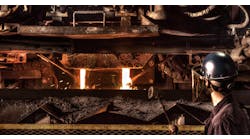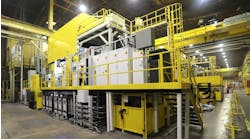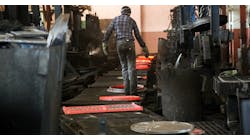January ended with a bit of good news, or rather news that will be good if it starts a trend – and even better news if those trendsetters understand why it’s good. Boeing and Airbus have both projected to hire thousands of new workers during the 11 months remaining of 2023, explaining that the supply-chain and public-health closings that impeded their work during past years will be overcome and each will be able to build and deliver more finished aircraft from their quite-full order books.
Analysts who cover Boeing and Airbus cheered these announcements, which drove some upticks in their stock values, though these endorsements were obviously in response to the signal that revenues from deliveries should be higher than in 2022 – and not apparently because anyone values the significance of employment to individuals or organizations, or to the localities where they operate, or indeed to the vast economy.
After all, analysts also mainly applauded the unexpected job cuts by big tech firms earlier in January, some 68,000 jobs ended at Amazon, Google, Microsoft, Meta, and other behemoths that swelled up their staffs of technicians and programmers and similar types to deal with the volume of online activity that resulted when thousands of other firms closed their plants, offices, and stores in life-or-death circumstances of 2020 and 2021.
“Over the past two years we’ve seen periods of dramatic growth. To match and fuel that growth, we hired for a different economic reality than the one we face today,” according to Google’s lifeless statement on its job cuts, and that tone and reasoning was mimicked by the others. No big deal to them, seemingly.
Is the “economic reality” the day-to-day financial prospect of any of these firms? Surely, economic reality is more pressing to those being fired or hired by such sweeping moves.
To find good news in these reports one must reconsider why any firm uses quotidian points about job numbers to drive its status in the fairly narrow discussion among analysts and investors – a contest it can “win” only one day at a time. Is it their goal to be a well-mentioned stock, or a stable and reliable enterprise that withstands shocks to the system, good news or bad?
The timing is off here. Boeing and Airbus, and the tech firms and analysts, should redirect their evaluation metrics to studying the value contributed by engineers, technicians, machinists, etc. – as they evaluate each casting, weldment, assembly, etc. – and how these totals project the enterprise for long-term value. Are they performing well? Are they contributing to growth?
By speculating the value of thousands of jobs they are playing with the balance of just as many lives, and distorting the value of the businesses they aim to grow.









